Interview With Tea master Panda
Today, dear tea friends, I have a special treat for you: an interview with my friend and mentor Tea Master Panda. Many of you might already know this name, for the others here is a short introduction:
Tea Master Panda is the driving force behind some of our best pu-erh teas such as Yiwu Lucky Bee, Mansa Gushu and Gua Feng Zhai Dragon Balls. He is a luminary in the field of pu-erh and therefore has a significant influence on Teamania’s tea selection.
Peter: Hello, what is your name, where are you from and what do you do?
Panda: My real name is Chen Zi Hao and I am originally from Sichuan. But I moved to Yunnan to produce pu-erh tea.
Peter: You are originally from Sichuan, which is why I gave you the nickname Panda, but you produce Pu-Erh, the typical tea of Yunnan? Why did you not stay in Sichuan to produce teas like Hei Cha or Zhu Ye Qing?
Panda: I prefer, no, I love pu-erh. I think every ambitious tea drinker ends up with Pu-erh sooner or later. The diversity and depth of pu-erh is incomparable. No other tea offers the same taste experience.
Peter: I’m with you all the way! Since when do you produce pu-erh?
Panda: Since 2004
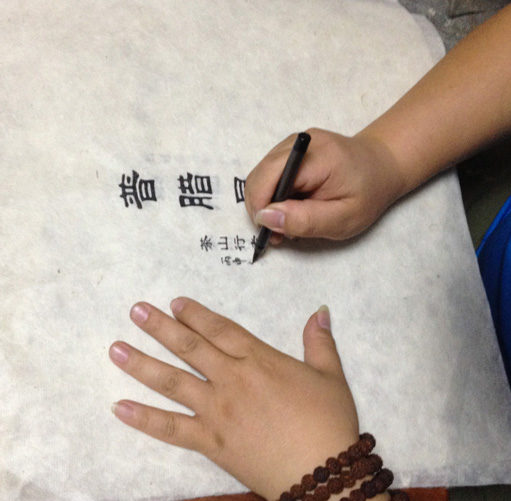
Peter: You work together with Yang Ming, a Tea Master from Yiwu. Would you like to tell us how you met and then became friends and partners?
Panda: I met Yang in Yiwu when I was looking for pu-erh tea. I strongly believe that it was fate that we met each other. I believe we are soulmates, because we have similar ideas about how a Pu-erh tea should be and how it should be produced. For Yiwu Lucky Bee we therefore use tea leaves from Yang’s own tea garden, which grow there completely naturally.
Peter: Your focus in cultivation is especially on the old six tea mountains. Why is that?
Panda: This is inevitable when you are dealing with the history of pu-erh tea. The six old tea mountains have always played an important role in the history of pu-erh. They were the main area for growing tribute tea, which was destined for the emperor, and it was here where the Tea Horse Road and the Southern Silk Road began.
Peter: What is so special about pu-erh?
Panda: When you drink pu-erh, you also take in the history of tea. It is also a way of staying in touch with the ancestors.
Peter: What is the secret of gushu? Why is everyone crazy about it and what is the difference to other teas?
Panda: The composition of the ingredients as well as their quantity is different in gushu tea leaves (tea leaves from centuries-old tea trees). Taidi (plantation tea) or shengtai (naturally grown) is often – but not always – related to its gushu counterparts, because it is grown from seeds of gushu or as a cutling from them, but there are still significant differences. For example, the roots of gushu trees reach much deeper into the soil and can therefore absorb more nutrients and minerals. Furthermore, old tea trees grow more slowly and can therefore accumulate more nutrients in the leaves.
Peter: I see. When I compare our Yiwu Lucky Bee – which is shengtai – with Yiwu Gushu, I see similar flavours, but the body feeling is different. Also, additional aromas and a slight, pleasant bitterness are noticeable.
Panda: Correct! And the older the tea trees are, the greater the difference in aroma and effect. Tall tea trees, called Da Shu, are the most powerful. Tea from such trees sometimes even have an intoxicating effect. Furthermore, Gushu tea becomes more intense in taste with increasing storage and often forms the typical camphor aroma.
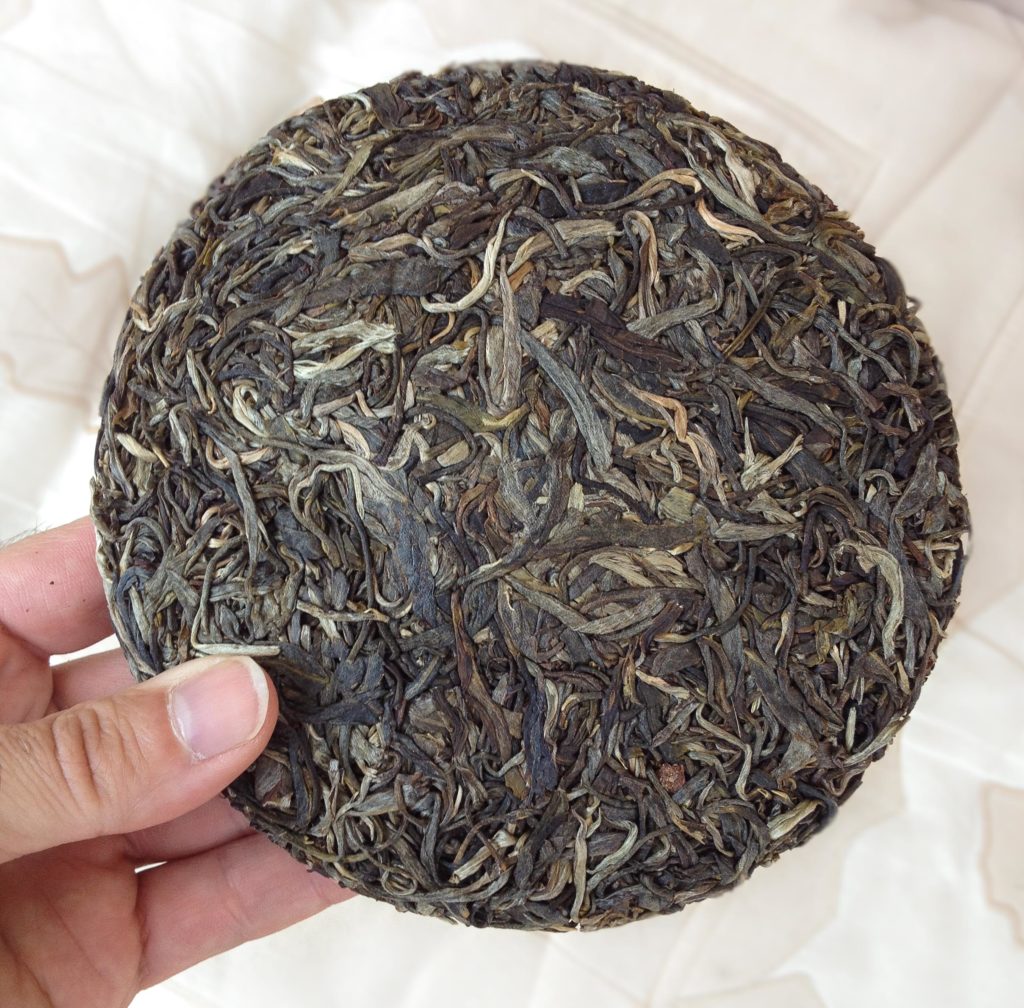
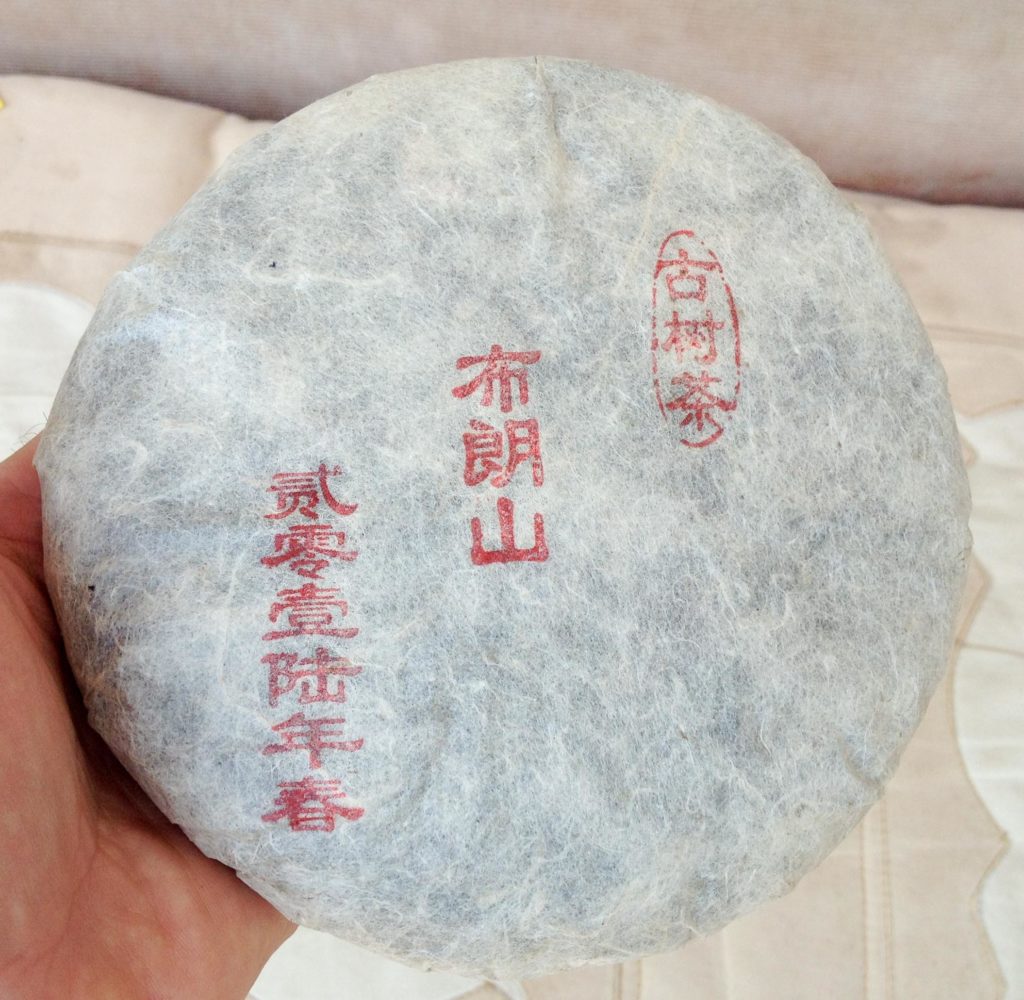
Peter: What do you think about new trends like purple tea, new tea mountains or modified processing techniques?
Panda: The purple tea leaves of purple tea are produced under rare conditions. That’s why such teas are very sought after and accordingly expensive. Recently, however, special breeds, which always produce purple tea leaves, have also been cultivated. These are all very young bushes, which are planted in plantations. They are Taidi, and they don’t have much in common with classic Pu-Erh.
But on some of the new tea mountains very good teas are produced. They are simply different from those on the old tea mountains. Tea from Bulang, for example, is very powerful, while tea from Jing Mai is rather fruity. I myself also produce tea from the tea mountains mentioned.
Many tea farmers have started to subordinate long-established processing steps to new trends, so that tea from young Pu-Erh bushes already tastes sweet and aromatic. However, such teas are not well suited for storage. In my opinion, this is rather green tea and has not much in common with Pu-Erh anymore.
Peter: I prefer a simple gaiwan to pour tea. What do you prefer?
Panda: Same like you. A gaiwan (cup with lid which is used to infuse tea) is easy to use and does not influence the tea. It is a neutral infusion vessel.
Peter: When I met you, you always had Nong Fu mineral water with you. What is it all about?
Panda: I use the water to ensure that the taste of the tea remains consistent during tasting. If you are looking for tea and taste it you have to create consistent conditions. Otherwise the sensory test results are not comparable. Nong Fu is also a very soft water and ideal for tea. What is the water like in your home?
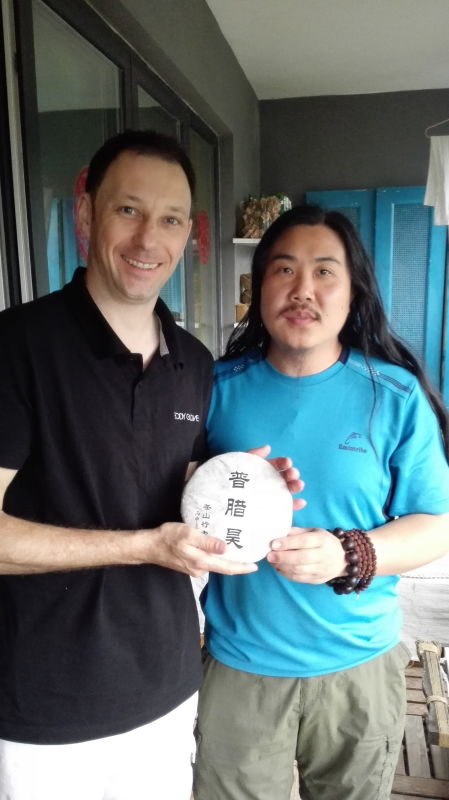
Peter: Here in Bassersdorf (Switzerland) we have very hard water. So it is anything but ideal for tea. Therefore we have installed a softening plant in the house.
What was your first thought when you got to know me?
Panda: I was impressed that someone would take such a long way to come for tea. But I was also impressed that you were able to blindly assign the individual teas to the right tea mountains. I think it is fate that we met and became friends.
Peter: Many thanks for these exciting insights. Is there anything else you would like to say to our readers?
Panda: Don’t get fooled by names and designations. Try the teas and then decide which one is right for you. Blind tests are a good tool. That way you are not influenced by big names or prizes. That’s the way I have handled it with you, dear Peter, and you have always preferred Mansa Gushu.
Peter: By the way, Mansa Gushu is still my favourite tea!

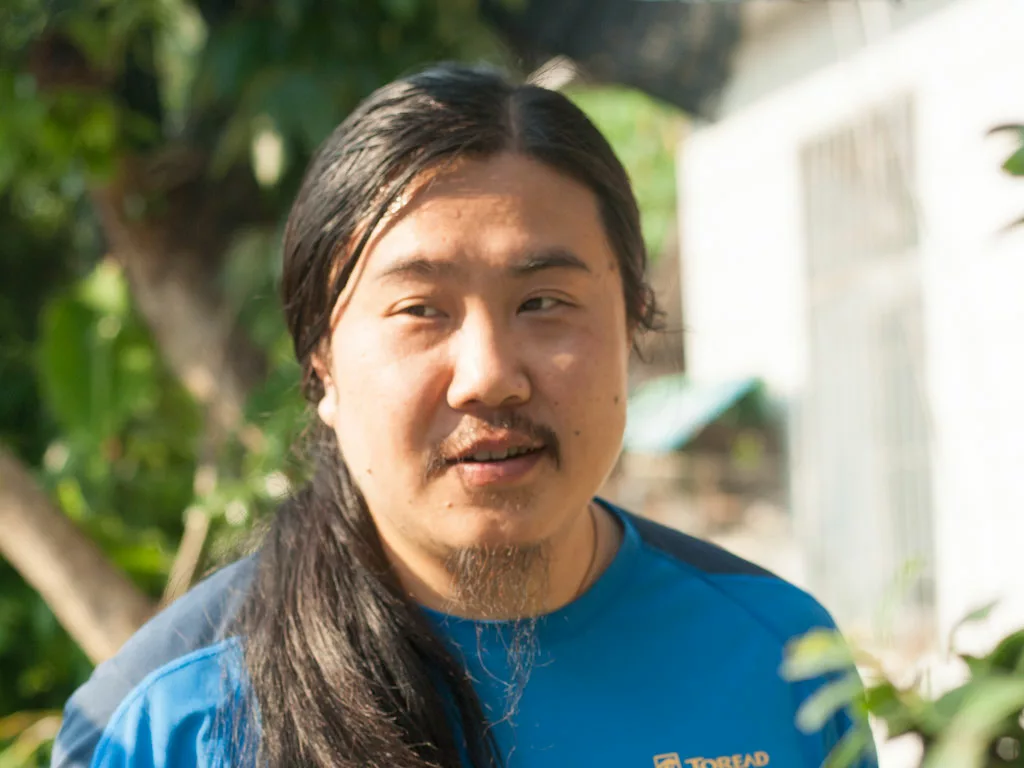
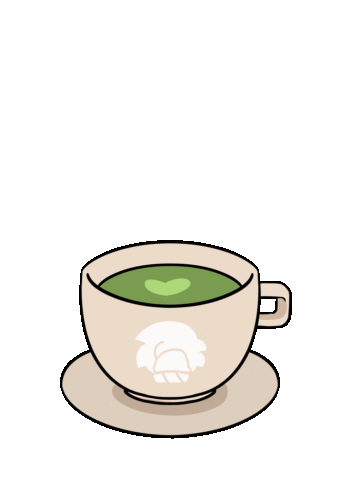
Pingback: 2018 Pasha Gushu Tea Tasting (Teamania) - Tea Adventures